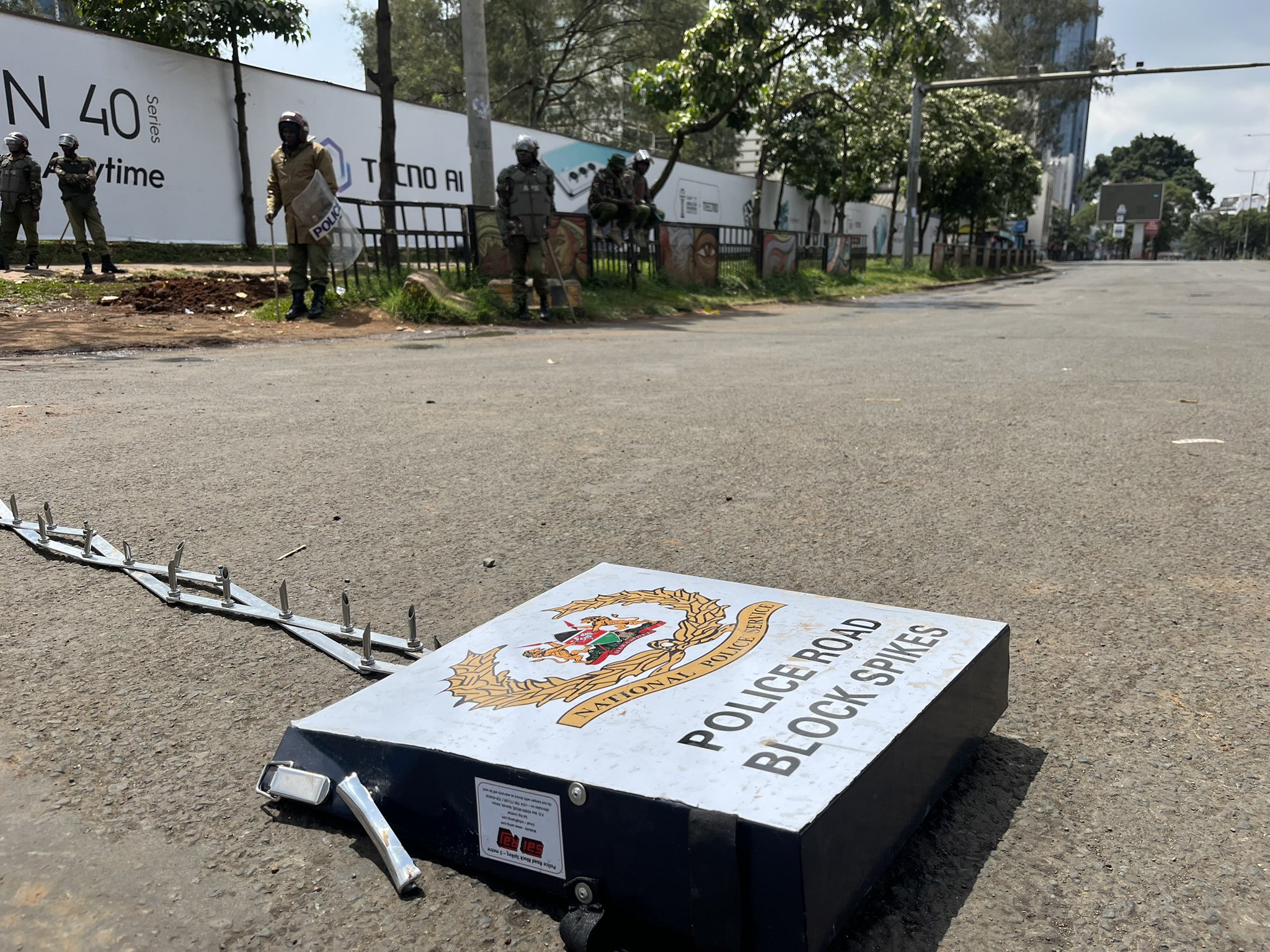News
Court Bans Police Road Barricades During Nairobi Protests

The High Court has issued a temporary injunction preventing police from blocking roads or restricting access to Nairobi’s Central Business District during public demonstrations, following legal action by the Katiba Institute.
Justice Lawrence Mugambi granted the conservatory order on Wednesday, ruling that law enforcement cannot mount barricades, roadblocks, or block entry into the CBD without providing prior public notice. The directive requires police to issue timely advisories to allow citizens to plan their activities accordingly.
The legal challenge arose after police cordoned off the capital using razor wire and blockades during recent anti-government protests, effectively locking down the city center. Katiba Institute argued these actions violated constitutional rights and transformed Kenya into a police state.
“The respondents risk rendering the Constitution useless and converting our democracy into an autocracy,” Katiba submitted to the court, naming the Inspector-General of Police and Attorney-General as defendants.
Justice Mugambi found merit in the application, noting that the sudden road closures had caused significant public inconvenience without warning. The judge emphasized the need to balance security concerns with citizens’ constitutional rights.
Through lawyer Malidzo Nyawa, Katiba Institute detailed how the blockades had disrupted access to workplaces, hospitals, and courts, with some proceedings adjourned due to absent staff and witnesses unable to reach their destinations. Emergency services, including ambulances, were also affected.
The legal team argued that the Inspector-General had exceeded his authority by unilaterally determining when constitutional rights could be exercised, particularly the right to peaceful assembly under Article 37 of the Constitution.
Katiba CEO Nora Mbagathi emphasized in her affidavit that constitutional rights are permanent guarantees that cannot be suspended through “extra-constitutional measures” or surprise street closures. She warned that without judicial intervention, the state would likely continue violating the Constitution and Bill of Rights.
Significantly, neither the Attorney-General nor the Inspector-General responded to the petition or attended the court session, despite being properly served with court papers.
The ruling contradicts police practices during recent protests where extensive barricades transformed Nairobi into what critics described as a “ghost city.” The court previously affirmed that the Inspector-General cannot ban protests in the CBD entirely.
The case remains pending a full hearing and determination. The temporary order represents a significant victory for civil liberties advocates who argued that democratic participation requires accessible public spaces and advance notice of any restrictions.
This ruling could reshape how authorities manage public demonstrations in Kenya, requiring greater transparency and constitutional compliance in crowd control measures.
Kenya Insights allows guest blogging, if you want to be published on Kenya’s most authoritative and accurate blog, have an expose, news TIPS, story angles, human interest stories, drop us an email on [email protected] or via Telegram
-

 Grapevine2 weeks ago
Grapevine2 weeks agoRussian Man’s Secret Sex Recordings Ignite Fury as Questions Mount Over Consent and Easy Pick-Ups in Nairobi
-

 News7 days ago
News7 days agoTHE FIRM IN THE DOCK: How Kaplan and Stratton Became the Most Scrutinised Law Firm in Kenya
-

 Investigations1 week ago
Investigations1 week agoMulti-Million Dollar Fraud: Three Kenyans Face US Extradition in Massive Cybercrime Conspiracy
-

 Economy1 week ago
Economy1 week agoIran Demands Arrest, Prosecution Of Kenya’s Cup of Joe Director Director Over Sh2.6 Billion Tea Fraud
-

 Business1 week ago
Business1 week agoA Farm in Kenya’s Rift Valley Ignites a National Reckoning With Israeli Investment
-

 Africa2 weeks ago
Africa2 weeks agoFBI Investigates Congresswoman Ilhan Omar’s Husband’s Sh3.8 Billion Businesses in Kenya, Somalia and Dubai
-

 Grapevine3 days ago
Grapevine3 days agoA UN Director Based in Nairobi Was Deep in an Intimate Friendship With Epstein — He Even Sent Her a Sex Toy
-

 Politics2 weeks ago
Politics2 weeks agoSifuna, Babu Owino Are Uhuru’s Project, Orengo Is Opportunist, Inconsequential in Kenyan Politics, Miguna Says
















